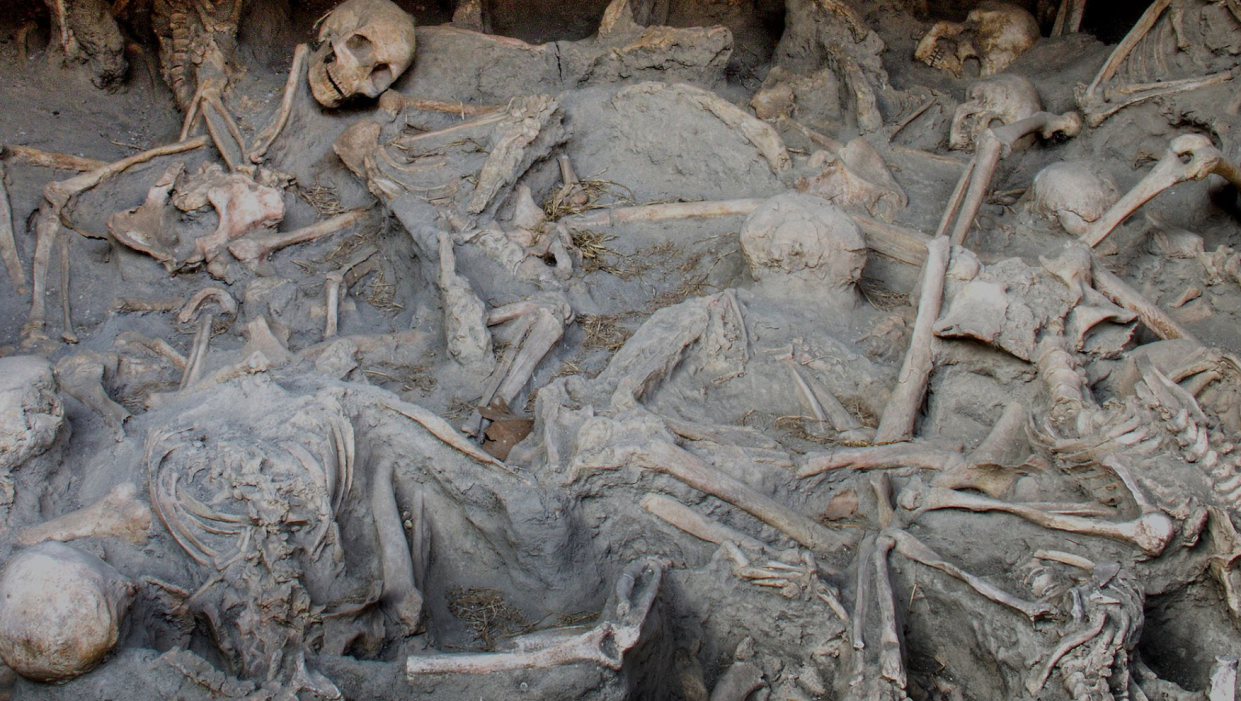Pompeii volcano ‘boiled people’s blood instantly’ and made their heads explode

When Mount Vesuvius erupted in 79AD, it buried the towns of Pompeii and Herculaneum in ash – and skeletons found in Herculaneum have revealed a new (and morbid) secret.
Researchers now believe the searing heat may have boiled people’s blood instantly – leading their heads to explode.
In research published in PLoS One, scientists from the Federico II University Hospital in Naples, Italy analysed skeletons found in waterfront chambers in Herculaneum.
The remains are incredibly well preserved, having been buried under volcanic ash for more than than 1,600 years.
The researchers analysed red and black residues found on the outside of the skeletons and came to a startling conclusion – it was their own blood.
READ MORE FROM YAHOO NEWS UK:
Two male runners die after collapsing at finish line of Cardiff half marathon
20 people killed in limousine crash before birthday party in upstate New York
Meghan Markle’s sister Samantha turned away from Kensington Palace after arriving unannounced
Police slammed for using ‘excessive force’ to arrest black man later cleared of stabbing
Banksy reveals how he concealed shredder in painting after auction house stunt
The researchers believe the searing heat in the chambers may have boiled the people’s blood – making their heads explode.
The researchers write, ‘An extraordinary find concerns skulls filled with ash, which indicates that after evaporation of the organic liquids the brain was replaced by ash.
‘The presence of such an ash cast in all victims, even those showing minor heat effects, provides evidence that the surge was sufficiently hot and fluid to penetrate the intracranial cavity soon after soft tissues and organic fluids disappeared.
The markings, the researchers say, ‘strongly suggest a widespread pattern of heat-induced hemorrhage, intracranial pressure increase and bursting, most likely to be the cause of instant death of the inhabitants in Herculaneum.’

 Yahoo News
Yahoo News 

